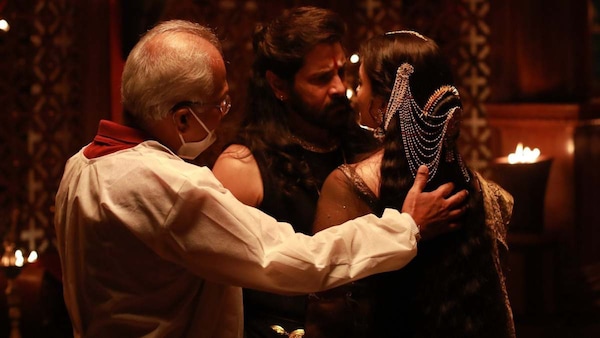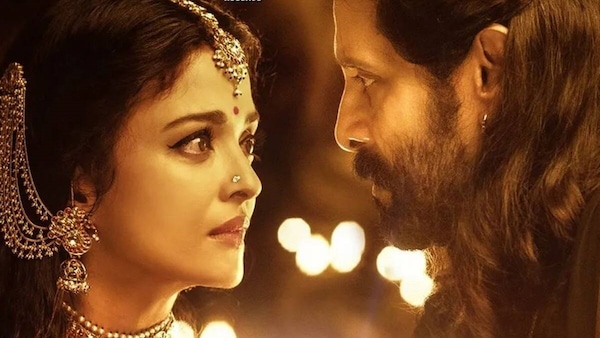Opinion | Ponniyin Selvan 2: The unexpected twist in Mani Ratnam's epic challenges glorification of violence in movies
In Ponniyin Selvan 2, Mani Ratnam shows us how recent movies have confused killing with heroism, and how they lack clear distinctions between necessary and unlawful violence.

Last Updated: 06.42 PM, Apr 30, 2023
If you have had the pleasure of watching director Mani Ratnam's latest masterpiece, Ponniyin Selvan, you may have felt the same sense of awe as I did during the dramatic confrontation scene between Vikram's Aditha Karikalan and Aishwarya Rai Bachchan's Nandini. This scene, in particular, is the heart and soul of Ratnam's two-part epic. While the events leading up to and following the scene are essential, it is this confrontation that makes the movie worth re-watching. Ratnam's ability to craft a masterful tale, along with the talents of his technical crew and cast, come together to create an exceptional cinematic experience.
Despite standing on its own as a showcase of Ratnam's ability to create breathtaking drama, this scene also manages to hold the audience's attention for a significant period. When this scene plays out, you can feel a hush fall over the audience, who are carefully watching how it will end. To evoke such a response from an overstimulated audience is a remarkable achievement in and of itself. However, there is more to this scene than what meets the eye.
As I mentioned in my review, the entire setup of the scene is sinister. Nandini has vowed to avenge Veerapandiyan by killing Aditha. She baits Aditha, and he willingly takes the bait. Soon, she lures him to a designated location to exact her revenge. I won't spoil the scene for those who haven't seen the movie yet, but I will discuss why this scene is so significant for the film and our viewing experience, as well as Ratnam's philosophy on violence.
In the first part of Ponniyin Selvan, there is another stunningly executed scene that sheds light on the root of Nandini's enmity towards the Chola clan. Nandini had been wronged by the royals in the past, but her thirst for revenge against the Chola men begins with the death of Veerapandiyan. Who Veerapandiyan is to her is a mystery that I won't unravel, so as not to spoil the story. But his demise is significant enough to drive Nandini to homicidal rage.
In a battle with the Chola army led by Aditha, Veerapandiyan and his army are on the brink of defeat. To save himself, Veerapandiyan flees to a nearby forest and takes refuge in Nandini's home. Aditha, who was pursuing Veerapandiyan, finds him in the close embrace of Nandini, the love of his life. Filled with fury and without knowing the full story, Aditha impulsively strikes Veerapandiyan with his sword, killing him instantly. Nandini's cry to spare his life falls on deaf ears.
But hatred only breeds more hate. At that moment, Nandini is consumed with the desire for vengeance. Despite songs written about Aditha's valour in the aftermath, he knows that his killing of Veerapandiyan was not honourable and weighs heavily on his conscience. As a result, Aditha shuns the capital of the Chola empire, Thanjavur, and the privileges of royalty. It's as if he is trying to find redemption through a death in battle that would be deemed honourable.

In part 2 of Ponniyin Selvan, Aditha accepts Nandini's invitation despite the potential danger. While he's known as a great warrior and conqueror dedicated to expanding the Chola empire, he's struggling with feelings of guilt, pity, and self-hatred. He's more suicidal than ambitious, which explains his relentless pursuit of war.
When Aditha finally meets Nandini, Ratnam subverts our expectations by setting the scene in a tone of reconciliation instead of a heated exchange of accusations and hatred. This scene shatters our preconceived notions and presents the situation in multiple angles and colours. The unexpected turn of events doesn't make us feel hatred for Nandini, despite her being the main antagonist of the story. By the end, we also see the most vulnerable side of the man who is celebrated as one of the greatest warriors.
The underlying philosophy of the scene also adds a biting comment on violence. Ratnam shows us how recent movies have confused killing with heroism, and how they lack clear distinctions between necessary and unlawful violence. Aditha is a war-machine who has killed countless men on the battlefield, but he struggles to come to terms with killing his enemy Veerapandiyan because it didn't happen on equal ground.
Veerapandiyan had no weapon and was lying on his back, leaving Aditha with no chance for an honorable fight.
Aditha could justify killing in war as a means of self-defense and his duty as protector of the Chola kingdom. But what he did in that small hut was morally wrong and unjustifiable. He kicked a man while he was down. He describes it as "murder" and calls himself a "murderer." Aditha never manages to forgive himself for that act.
Understanding this important distinction helps us fully appreciate Ratnam's vision and his interpretation of Kalki's Ponniyin Selvan.

 Premium
Premium